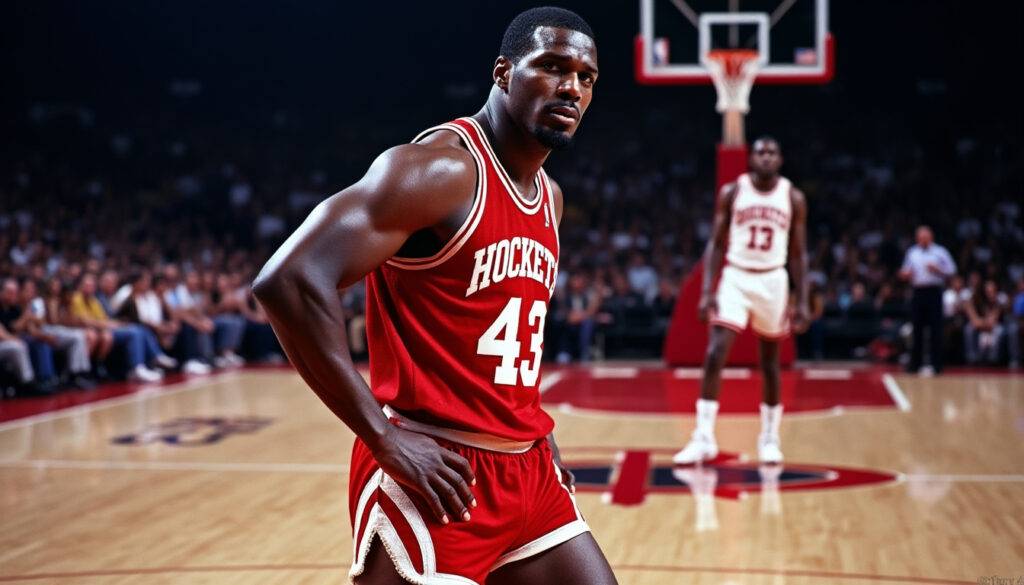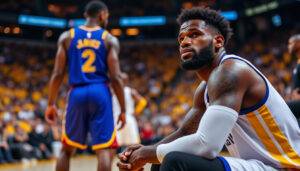Moses Malone: The Trailblazer Who Elevated the Rockets and Inspired Hakeem Olajuwon

Moses Malone’s impact on the Houston Rockets and his role in shaping Hakeem Olajuwon’s ascent are stories of resilience, mentorship, and a franchise's evolution. Malone didn’t just score or rebound; he redefined inside play, set a standard for professional growth, and left a blueprint that still informs the NBA’s culture in 2025. His career arc—from ABA roots to NBA glory with the Rockets and beyond—offers a critical lens on how leadership and skill can elevate a team’s trajectory for decades.
- Transformed a struggling franchise after the ABA-NBA merger, Malone helped Houston find its footing, culminating in their first Finals run.
- Redefined inside dominance with relentless offensive rebounding and paint presence, a signature that altered how teams approached scoring battles.
- Raised the Rockets’ national profile and laid groundwork for future legends like Hakeem Olajuwon and, later, a transformative era led by Harden.
- Built a lasting culture centered on work ethic, humility, and accountability—traits that endure in Rockets lore.
- Era branding and gear echo the times, with Nike, Adidas, and Reebok at the forefront of sneaker culture; Spalding balls and Mitchell & Ness-style jerseys defined the court’s look, while Foot Locker served as a hub for fan merch; Champion apparel completed the vintage vibe; and Bleacher Report keeps revisiting Malone’s influence in today’s NBA narrative.
The Rockets’ ascent under Malone’s leadership wasn’t just about wins; it was about transforming a franchise’s identity. This section traces how Malone’s arrival coincided with a shift in how Houston approached competition, preparation, and player development, setting the stage for Olajuwon’s eventual emergence as a franchise cornerstone.
Moses Malone: The Trailblazer Who Elevated the Rockets And Inspired Hakeem Olajuwon
Malone arrived after the ABA-NBA merger, bringing a rare combination of size, physicality, and a relentless nose for rebounds. His presence helped Houston shift from a franchise that had seen limited playoff success to a team that could threaten for championships. He catapulted the Rockets to their first NBA Finals in 1981, a remarkable turnaround for a squad that had struggled to win consistently in the regular season. Across his Rockets years, Malone’s impact extended beyond pure statistics; he defined an era of inside-out defense and second-chance opportunities that rivaled the best teams of the era. His kind of leadership—dour but effective, quiet but unwavering—offered a template for players who would later join Houston in the years ahead. In 2025, analysts still reference Malone as a foundational figure who helped Houston become a legitimate NBA title contender, a pivot that also created room for the next generation to flourish.
- Turnaround catalyst for a Rockets franchise that had yet to find sustained playoff footing in the post-merger era.
- NBA Finals breakthrough in 1981, signaling Houston’s arrival as a legitimate championship contender.
- Relentless rebounding and paint dominance that changed how teams approached offense and defense around the league.
- Mentor to Olajuwon, helping shape a player who would redefine what a center could be in the NBA.
- Enduring legacy in the Rockets’ culture—a model for humility, work ethic, and on-court intensity that transcends eras.
The Mentorship That Shaped Hakeem Olajuwon And The Rockets' Generational Shift
Among the most compelling parts of Malone’s story is his mentorship of Hakeem Olajuwon. As Paul Knepper details in discussions with Rockets writers, Malone didn’t just push Olajuwon on the court; he mentored him off it—sharing moves, offering encouragement after tough nights, and even encouraging Olajuwon as he adjusted to life in the United States. The dynamic wasn’t just about technique; it was about building a foundation for a future superstar. Olajuwon credited the hard lessons learned against Malone as a catalyst for his own maturation, a process that helped him evolve into a transcendent player with a global brand. In the broader NBA conversation, this mentor-mentee relationship illustrates how an established great can accelerate the development of a rising star, accelerating a franchise’s trajectory in meaningful, lasting ways. This is a storyline echoed in today’s coverage by Bleacher Report, which frames Malone as a pivotal architect of Olajuwon’s early gains and Houston’s enduring basketball culture.
- Technical guidance—Malone shared post moves, positioning, and rebounding angles that Olajuwon could immediately apply on the floor.
- Life and career navigation—off-court mentorship helped Olajuwon adapt to college and pro life in a new country, easing the transition.
- Competitive mindset—daily routines, preparation habits, and a fearless approach to challenging matchups were passed down.
- Legacy amplification—Olajuwon’s growth under Malone’s tutelage fed a larger Rockets era that would later welcome more stars and international influence.
- Historical context—the mentorship occurred in an era when the NBA was rapidly evolving in style, athletic training, and global reach, a context that still informs how teams develop young talent today.
Beyond the court, Malone’s influence helped Olajuwon navigate a transition into the NBA’s upper echelon, a process that would culminate in Olajuwon becoming one of the era’s most celebrated centers. The mentorship is often cited as a key factor in Olajuwon’s development, and it stands as a testament to the lasting value of veteran leadership within a franchise. This is the kind of legacy that continues to be analyzed by modern outlets like Bleacher Report in discussions about how great teams cultivate young talent and sustain success over time.
Malone's Enduring Legacy: Redefining The Superstar Template For Rockets And The NBA
Malone’s career arc—going straight from high school to the pros, dominating the boards, and serving as a stabilizing, unassuming leader—helped redefine what a star could be in the NBA. He wasn’t loud or flamboyant; instead, he built a template of greatness grounded in hard work, resilience, and generosity toward the next generation. As the Rockets continued to evolve, Malone’s example remained a touchstone for how to balance big-game impact with the humility that fosters sustainable team chemistry. In 2025, his influence is still felt in how front offices and players talk about mentorship, development pipelines, and the importance of players who can elevate others while maintaining excellence on the floor. His legacy also resonates with fans of the broader NBA narrative, where brands like Nike, Adidas, Reebok, and Spalding have chronicled the era’s style, gear, and stories—an ecosystem that Bleacher Report continues to explore as it revisits the Trailblazer who helped Houston rise.
- Trailblazer status—the first major example of a player thriving after skipping college, paving the way for future generations of talent to rethink traditional paths.
- Inside-out evolution—his emphasis on rebounding and efficient scoring helped reshape how teams value interior production.
- Mentorship blueprint—his example informed how veteran players mentor the next generation, a precedent now seen across the league.
- Rockets’ cultural foundation—Malone’s era contributed to a culture of accountability and relentless competition that underpinned later success, including the Harden era.
- Legacy in media and history—Bleacher Report and other outlets continue to spotlight his influence on the Rockets’ identity and the broader NBA narrative.
- Q: Why is Moses Malone considered a trailblazer for the Rockets and the NBA?
A: He changed how teams built inside-out, led Houston to its first Finals, and established a mentorship model that shaped Olajuwon and future stars, setting a standard for humility, work ethic, and on-court dominance. - Q: How did Malone influence Hakeem Olajuwon’s development?
A: Malone pushed Olajuwon with tough, practical guidance on post moves and footwork, mentored him off the court during the transition to life in the U.S., and showed him how to balance elite play with quiet leadership. - Q: What does Malone’s legacy mean for the Rockets in 2025?
A: It anchors a franchise identity built on resilience and player development, a template that helped future stars flourish and that still informs how the Rockets recruit, coach, and cultivate talent today. - Q: Which brands and cultural touchpoints are associated with Malone’s era?
A: Nike, Adidas, Reebok, Spalding, Mitchell & Ness, Foot Locker, and Champion were emblematic of the period’s gear and retail culture, and Bleacher Report keeps revisiting how those factors intertwined with Malone’s story.

